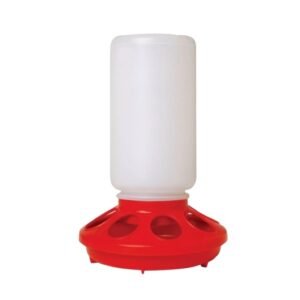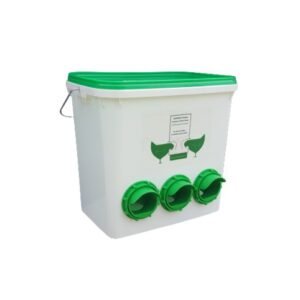Infectious Bursal Disease (IBD) is a highly contagious viral disease affecting young chickens, primarily targeting the bursa of Fabricius, leading to immunosuppression. The disease is caused by a virus of the Birnaviridae family.
SYMPTOMS
CAUSES
PREVENTION
TREATMENT
Symptoms
- Chickens (Most Susceptible):
- Acute Form (3-6 weeks old):
- Sudden onset depression
- Ruffled feathers
- Watery diarrhea
- Dehydration
- Trembling
- Severe prostration
- Death within 2-3 days
- Mortality 20-30%
- Subclinical Form:
- Immunosuppression
- Increased susceptibility to other diseases
- Poor growth
- Reduced vaccine response
- Acute Form (3-6 weeks old):
- Note: Turkeys, ducks, and other birds are generally resistant to clinical disease but may carry the virus.
Causes and transmission
- Viral Characteristics:
- Highly resistant virus
- Survives extreme environmental conditions
- Two serotypes: 1 (pathogenic) and 2 (non-pathogenic)
- Transmission Routes:
- Direct contact with infected birds
- Contaminated feed and water
- Feces
- Equipment
- Personnel
- Resistant to many disinfectants
Prevention strategies
- Vaccination Program:
- Breeder vaccination
- Proper timing of vaccination
- Maternal antibody monitoring
- Multiple vaccine types available
- Biosecurity:
- Strict sanitation protocols
- All-in-all-out system
- Visitor restrictions
- Equipment disinfection
- Age segregation
- Management:
- Good ventilation
- Proper stocking density
- Clean water supply
- Stress reduction
Treatment options
- No specific treatment exists. Focus on:
- Supportive care
- Electrolyte supplementation
- Vitamin supplementation
- Antibiotics only for secondary infections
- Good nursing care
Conclusion: Recovery from infection provides long-lasting immunity.

